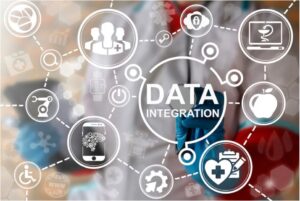The accounting profession is undergoing a major transformation driven by the rise of data analytics. CPAs are increasingly leveraging data analytics tools and techniques to extract valuable insights, improve efficiency, and provide better advisory services to their clients. This evolution is discussed in detail on websites like ACCA Global and Franklin University.
However, as discussed by Insight Consultants, there is a growing talent shortage when it comes to CPAs with strong data analytics capabilities. Firms will need to invest in upskilling and recruiting data-savvy talent to keep pace with this evolution.
Introduction
Data analytics refers to the process of examining large datasets to uncover hidden patterns, correlations, and trends. When applied to the field of accounting, as explained by Kenan-Flagler, it allows CPAs to analyze financial and operational data in new ways that were not possible before.
CPAs can use data analytics across a wide range of accounting functions including auditing, tax preparation, financial analysis, and advisory services. By harnessing the power of data, they are able to work smarter, faster, and provide more value. Data analytics is helping transform core CPA responsibilities:
Financial Reporting
CPAs can use data analytics to improve financial reporting by analyzing large datasets across multiple systems and entities to produce higher quality consolidated financial statements. Data validation techniques can enhance accuracy and completeness.
Tax Planning
Data analytics enables more proactive tax planning by identifying patterns and anomalies to detect potential tax savings opportunities and risks. This allows CPAs to provide more strategic tax advice.
Forecasting
Sophisticated forecasting models informed by historical trends, industry benchmarks and multivariate analysis can improve budgeting and projections. This supports better informed financial decisions.
Fraud Detection
Continuous transaction monitoring and data mining can assist CPAs in detecting anomalies that may indicate fraudulent activities. This strengthens risk management and controls.
Here are three major ways that data analytics is improving the work of accounting professionals:
Data Analytics to Provide Valuable Business Insights
One of the biggest benefits of data analytics for CPAs, highlighted by PWC, is the ability to derive data-driven insights that can inform strategic decisions.
For example, as noted by Insight Consultants, AI and machine learning can help uncover insights from vast amounts of data to enable more strategic financial planning and growth decisions.
Types of Insights Generated
Some examples of valuable business insights CPAs can provide through data analytics include:
- Customer segmentation – Grouping customers into segments based on common attributes like demographics, behaviors, and needs. This allows for more targeted marketing and product development.
- Sales forecasting – Predicting future sales levels based on historical sales data, seasonality patterns, and external factors like marketing spend.
- Inventory optimization – Determining optimal inventory levels across locations based on demand forecasting and other variables. This minimizes overstocking and stock-outs.
- Cost allocation – Using data to accurately allocate shared costs across business units, products, or services. This provides visibility into true profitability.
- Delivering Impactful Insights
For delivering powerful insights, best practices include focusing on KPIs that are aligned with business objectives, as emphasized in this LinkedIn article. CPAs need to learn how to summarize data findings, translate them into strategic recommendations, and track ROI.
Data Analytics Tools for Real-Time Dashboards
Data visualization has become an indispensable tool for bringing data insights to life, as explored by Accounting Today and NKU Online.
CPAs are increasingly creating real-time interactive dashboards using leading tools like:
- Tableau – Provides easy drag-and-drop dashboard creation with advanced visualization capabilities.
- Power BI – A Microsoft tool ideal for building shareable dashboards using data across systems.
- Domo – A cloud-based BI platform optimized for mobile dashboard access.
Well-designed dashboards deliver valuable advantages:
- Faster insights – Visual data representation makes it easier to spot trends and outliers.
- Improved decision-making – Real-time access to KPIs enables quicker, data-driven decisions.
- Enhanced visibility – Up-to-date visibility into metrics allows for rapid course correction.
- Better communication – Visualizations facilitate discussion and understanding of analytics.
The importance of real-time dashboards and data visualization is also discussed in the Ohio CPA Journal and the PA CPA Journal.
Data Analytics for More Effective Auditing
Data analytics is enabling a revolution in the audit profession, with sources like ISACA and the Journal of Accountancy discussing its implications.
Data analytics is transforming the audit process:
- Risk assessment – Identify anomalies and potential fraud risks through statistical analysis.
- Audit planning – Determine scope and select samples based on automated risk analysis.
- Audit testing – Enable analysis of entire populations rather than just samples.
- Audit evidence – Obtain more persuasive substantive evidence from whole datasets.
Several areas in the auditing profession are transformed by data analytics, as covered by Diligent and Wolters Kluwer.
Data analytics allows auditors to maximize productivity and quality, as detailed in articles from Diligent and Journal of Accountancy.
However, auditors need to develop new data skills, integrate analytics into workflows, manage large data volumes and collaborate effectively with IT to fully realize the potential, as noted by CPA Credits.
Conclusion
Early adopters who embrace data analytics, as indicated in studies by institutions like Fox Temple and IACPA, will be well-poised to provide higher value services and improve operational efficiency. However, CPAs will need to continuously build their data analytics skills and integrate new tools into core workstreams to remain competitive. Firms that successfully leverage analytics will be strongly positioned to unlock smarter insights and power digital transformation.







